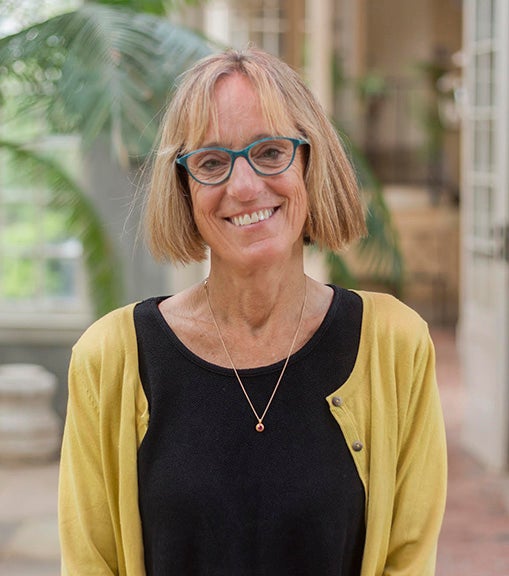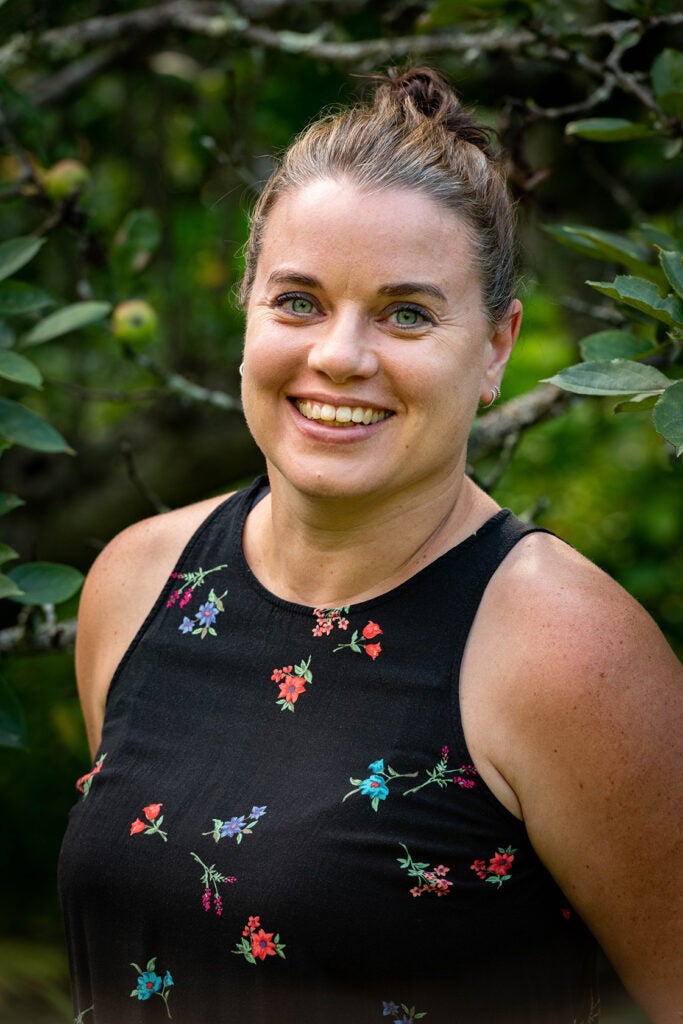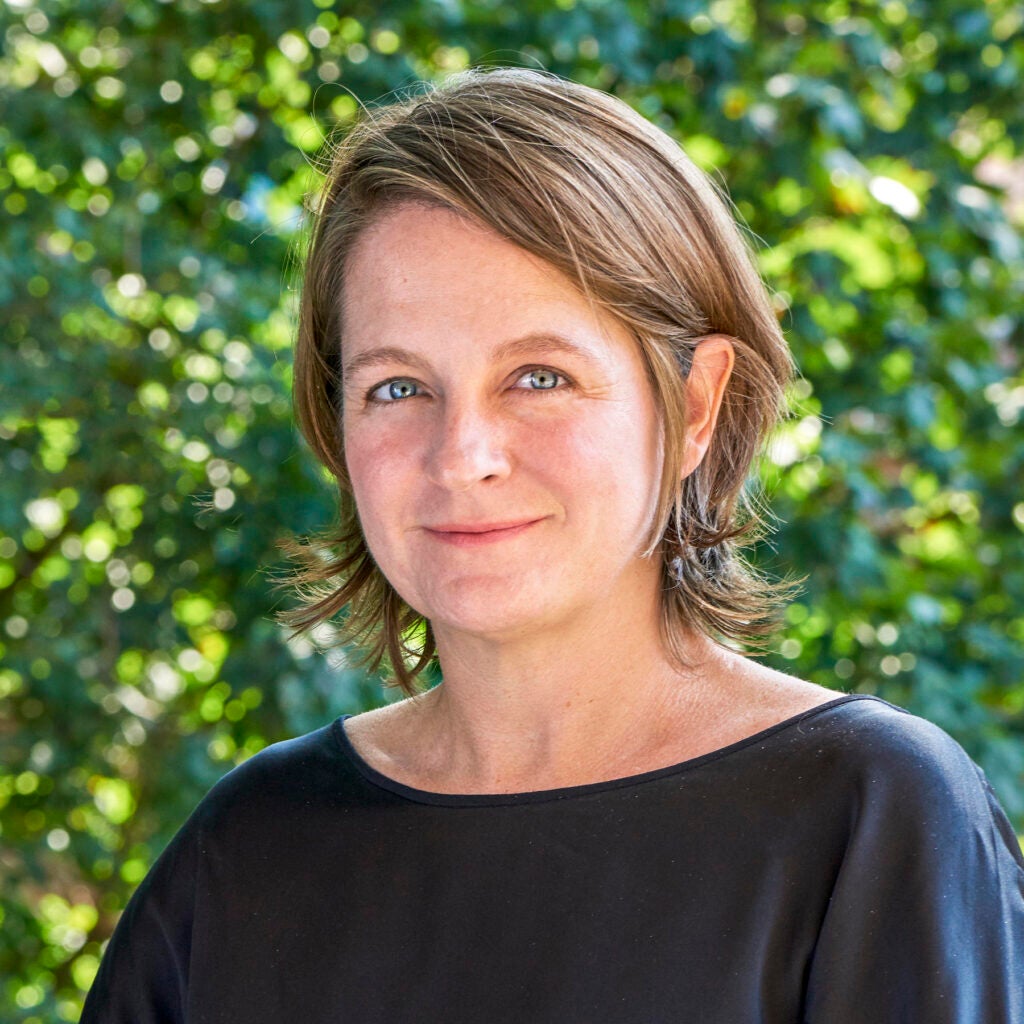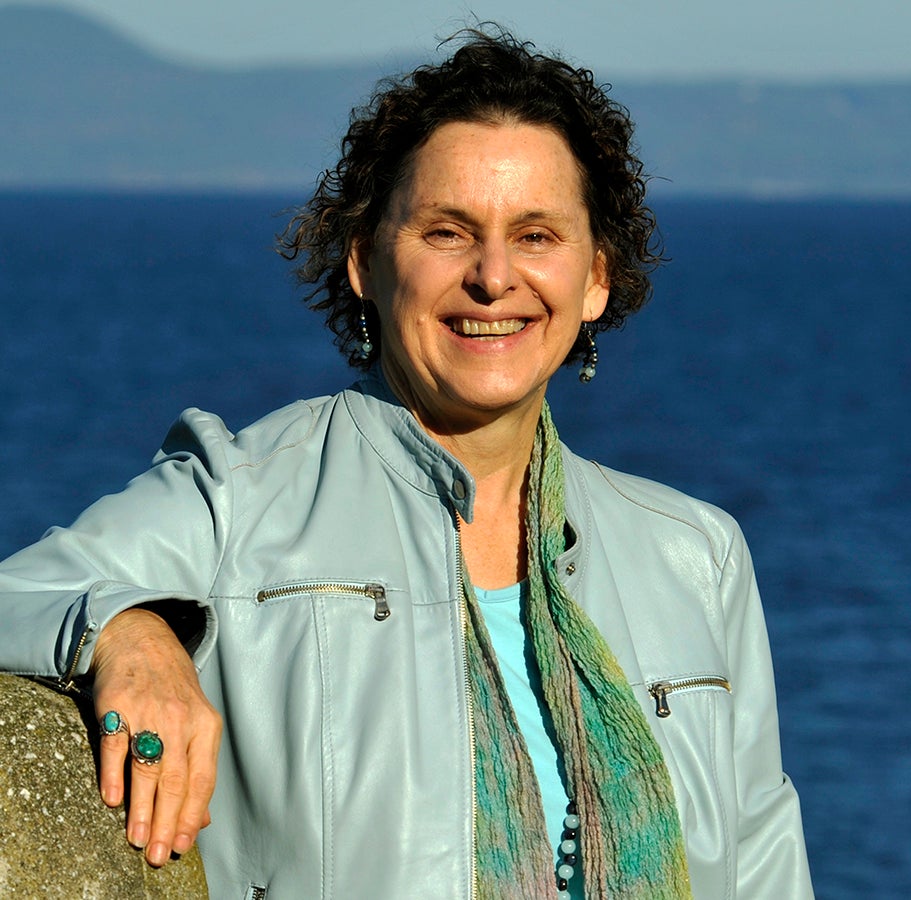KINGSTON, R.I. – Sept. 23, 2021 – The University of Rhode Island’s 29th annual Landscape Architecture Lecture Series opens Thursday, Sept. 23, with a presentation by Patricia O’Donnell, a preservation landscape architect and urban planner whose firm has worked on such iconic projects as the National Mall and the Woodstock Festival Site as well as advancing the valued landscape heritage of diverse cultures.
The fall lectures will explore the meaning of history and culture in the works of professional landscape architects, said William Green, professor of landscape architecture and series organizer. The series returns to an in-person format this semester with lectures Thursdays at 7 p.m. in the Ernest Mario Auditorium (room 170) in Avedesian Hall, 7 Greenhouse Road, on the Kingston Campus. The lectures are free and open to the public. All attendees must wear a face covering.
O’Donnell, founder of Heritage Landscapes LLC in Charlotte, Vermont, will discuss “Cultural Landscapes for Planetary Justice – How Does Heritage Contribute” in her virtual talk, which will be broadcast in the Earnest Mario Auditorium, followed by a question-and-answer session. (Speakers for the remainder of the fall schedule are expected to be in person.)
Since its start in 1987, Heritage Landscapes has completed more than 500 commissions that foster preservation and promote economic, environmental and societal sustainability for valued public spaces. The company was honored with the American Society of Landscape Architects’ prestigious Firm Award in 2019 for 32 years of preservation work.

On Oct. 7, alumni Emily Humphrey ’15 and Ramón Ibarlucea ’14 will be the featured speakers. Humphrey, an associate of Michael Van Valkenburgh Associates in Cambridge, Massachusetts, will speak on “Uncovering the Multifaceted History of the Toronto Port Lands.” Ibarlucea, an associate in the firm Stimson Associates, also of Cambridge, will discuss “Historical Fiction: Gathering Inspiration from Context and Site History.”
Humphrey’s design work was influenced by the practical and tactile qualities of the land as a fine gardener and farmhand while at URI, as well as a three-month road trip around the U.S. to visit national parks. At URI, she also assisted in research on sea level rise and its impact on coastal communities, and took part in a permaculture design internship in Hawaii.

At URI, Ibarlucea was interested in studio and research projects that focused on mitigating the impact of climate change and sea level rise on coastal communities. With Stimson, he has worked on such projects as developing outside spaces for students at Babson College, and designing landscape interventions and developing the landscape for a new performing arts center, both at Brown University.
On Oct. 28, Thaïsa Way, program director of garden and landscape studies at Dumbarton Oaks Research Library and Collection in Washington, D.C., will focus on “Race and Gender in the Emergence of Landscape Architecture.”

Way, who holds a Ph.D. in architecture and landscape history from Cornell University and a master’s degree in architectural history from the University of Virginia, is a fellow of the American Academy in Rome and a member of the American Society of Landscape Architects, as well as an urban landscape historian teaching and researching history, theory, and design in the Department of Landscape Architecture at the College of Built Environments at the University of Washington.
On Nov. 18, Danielle Desilets ’99, a senior associate at Kyle Zick Landscape Architecture (KZLA) in Boston, will discuss “Shifting Perspectives: Correcting the National Record.”

In her 20 years as a landscape architect, Desilets has focused on historic and cultural landscape preservation, along with serving as a project manager on projects including park master planning and recreation design, trail system planning and design, campus planning, and design for accessibility and sustainability. At KZLA, Desilets has worked with the U.S. Department of State, the National Park Service, the Massachusetts Department of Conservation and Recreation, and municipalities throughout New England and New York State. She has documented and planned historically significant landscapes for projects such as the U.S. Chancery & Chief of Mission Residence in New Delhi, India, and the U.S. Embassy Compound in Rome.
Closing out the fall semester are Eric Kramer and Beka Sturges, partners at Reed Hilderbrand Landscape Architects in Cambridge, Massachusetts. On Dec. 2, they will speak on “Designing Histories – Voices, Claims, and Reconciliation.”

Through works that include Boston’s Central Wharf Plaza and the Alamo Plaza Interpretive Master Plan in San Antonio, Kramer has designed numerous landscapes associated with the renewal and enrichment of campuses, cities and institutions. Kramer earned his master’s degree in landscape architecture at Harvard Graduate School, where he received the Charles Eliot Fellowship.
As head of Hilderbrand’s New Haven office, Sturges’ recent projects include Yale University, Storm King Art Center, and phase one of the Mill River Trail, a 4-acre linear park running through the center of New Haven. Her work is known for its powerful spatial demonstration of the cultural and environmental value of landscapes. Sturges also teaches at Yale School of Architecture and Connecticut College.

For more information, email William Green at wagre@uri.edu or call (401) 874-2983. All presentations will also be available over Zoom by emailing Green for a link to the lecture.
The series is sponsored by the Rhode Island Chapter of the American Society of Landscape Architects, URI College of the Environment and Life Sciences, University Libraries, the departments of Landscape Architecture and Art and Art History, and the Gaetano and Pasqualina Faella Endowment.

